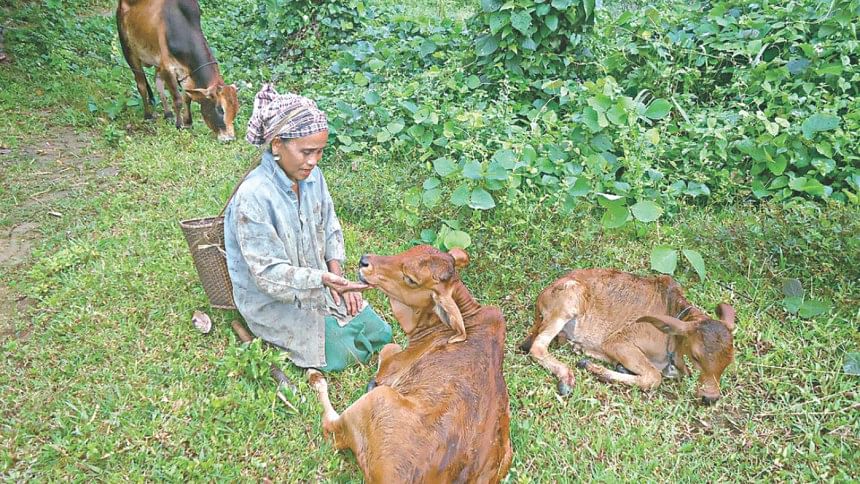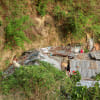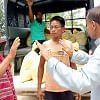Cattle Farming in Hills: Mro community makes a shift

If you take a look at Kaiplem Mro, you can feel the confidence she exudes. The 53-year-old indigenous woman from the remote Mrolongpara under Sadar upazila of Bandarban is in charge of her own future.
Coming from extreme conditions in the hilly Bandarban regions of the under provisioned south east regions of Bangladesh, her community has always relied on traditional forms of livelihoods up until recently.
It was early 2013 when she bought a cow for Tk 12,800 and sold it later that year for Tk 55,000. This was her point of no return.
She has reared cattle ever since and owns eight cows at the moment. With experience, she even sold a single cow for Tk 100,000 recently.
“This is an easy business for me. I only have to buy the cow and the rest is free of cost as the cattle roam free and graze on grass and leaves in the hilly terrain,” said Kaiplem, who has become an inspiration for others in the village.
Johrom Mro of the same community has followed in her footsteps and now has six cows, changing the financial fate of his family.
Reng Nok Mro also bought a cow recently for Tk 20,000 and hopes to be able to sell it at a profit within a year.
“Indigenous women don't get a chance to have a say in the finances, but Kaiplem has changed that,” said Uien Mro, karbari of Mrolong Para.
With dreams of growing the herd in future, Kaiplem said, “I am glad our small community is able to encourage one another.” The mother of three, all of whom are now married, now spends her days taking care of her cattle.
Jhum cultivator Taien Mro, Kaiplem's husband, said cattle farming is more profitable than other traditional forms of agriculture in the hills.
“There is good demand for the organic, free range cattle from the hilly areas,” said Sirajul Islam, a cattle businessman of Bandarban. “I have no trouble selling this produce.”
Being born into the hill-tracts-based Mro community means to inherit a rich culture of age-old tradition, including the agricultural practice of jhum cultivation. But instead of relying on the established ways, Kaiplem is paving the way for new traditions.

 For all latest news, follow The Daily Star's Google News channel.
For all latest news, follow The Daily Star's Google News channel. 








Comments